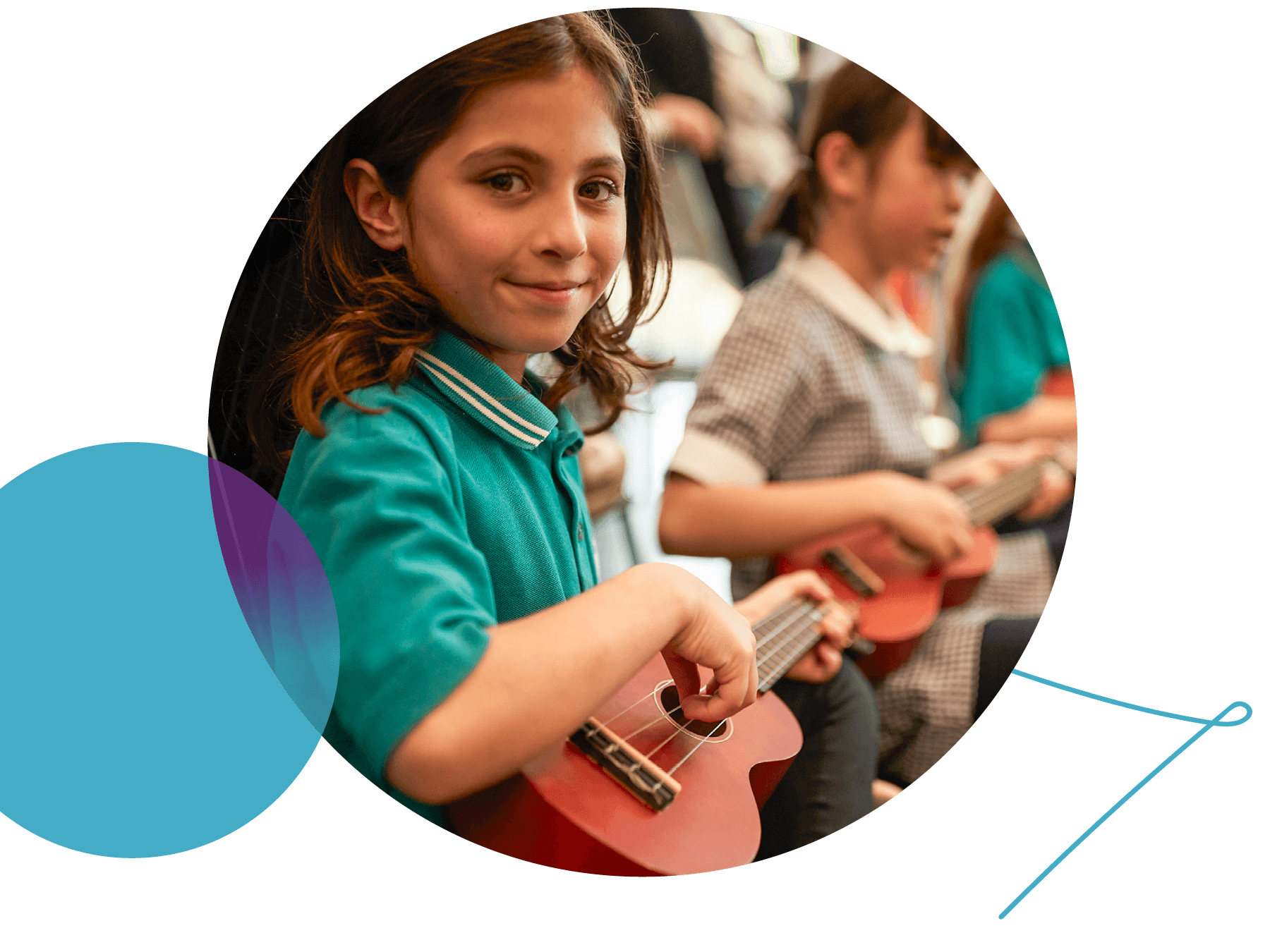
Why music education?
A quality, sequential and ongoing music education has been demonstrated to deliver significant personal and public benefits at a modest investment. The benefits go well beyond any simple calculation of return on investment: music is a counterweight to the emotional and mental health distress and the sense of dislocation that is rampant among young people in these turbulent times. Music education is an antidote and an educational booster in the same package.
Watch now
Unveiling our Setting the tempo research
SA Minister for Education unveils our survey of SA primary teachers
Perspectives on the power of music education
Industry guests | Music Education: Right from the Start launch event
Music Education: Right from the Start official launch event!
Peter Garrett AM and Susan Templeman MP joined us to launch this initiative in Melbourne in September 2022.
What if every child had access to music education from birth
Anita Collins | TEDX Canberra
How playing an instrument benefits your brain
Anita Collins | TEDX Canberra
Unlocking the brain’s power through musical performance
Our Senior Advisor, Dr Anita Collins, unveils the neuroscience of children's musical performances.
Challenges facing equitable music education in Australia's primary schools
What are the barriers preventing equitable access to quality music education for our primary school students?
Exploring the benefits of music learning with Dr Anita Collins
Dr Anita Collins dives into the substantial evidence of the benefits of music learning to kids’ development.
The Governor-General champions music education for all children
Her Excellency the Honorable Ms. Sam Mostyn AC, Governor-General of Australia becomes Patron of Music Education: Right from the Start
The Benefits
While the social sciences have long shown the personal, emotional and social benefits of music, there is also extensive research on music learning in the fields of neuroscience and psychology. The research provides substantial evidence for the benefits including that a quality music education:
Increases attention stamina and focus
Improves social skills and personal wellbeing
Heightens empathy and valuing of diversity
Reduces stress and anxiety
Improves learning capacity
Supports reading and numeracy skills
Improves self-regulation
Improves cognitive connectivity and efficiency
Hones neural synchronisation to enhance learning
Supports immune health
Boosts academic performance in English, Maths and Science
A summary of the core research findings regarding music education can be found in our report Music Education: A Sound Investment.



